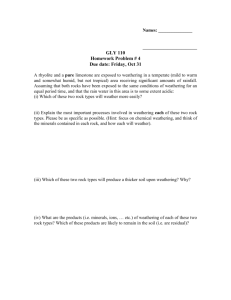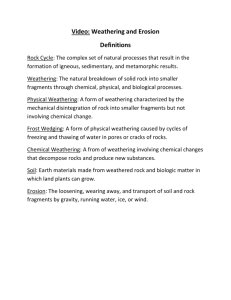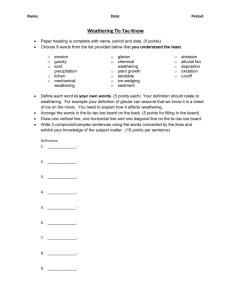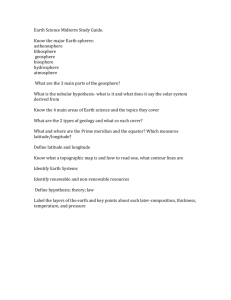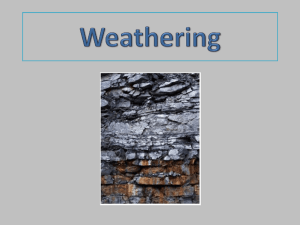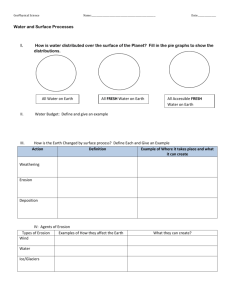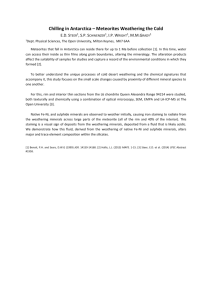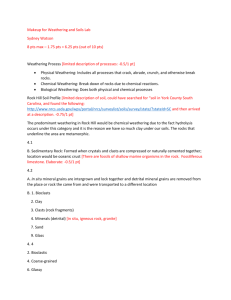`Name___________________ Rates of Chemical Weathering
advertisement
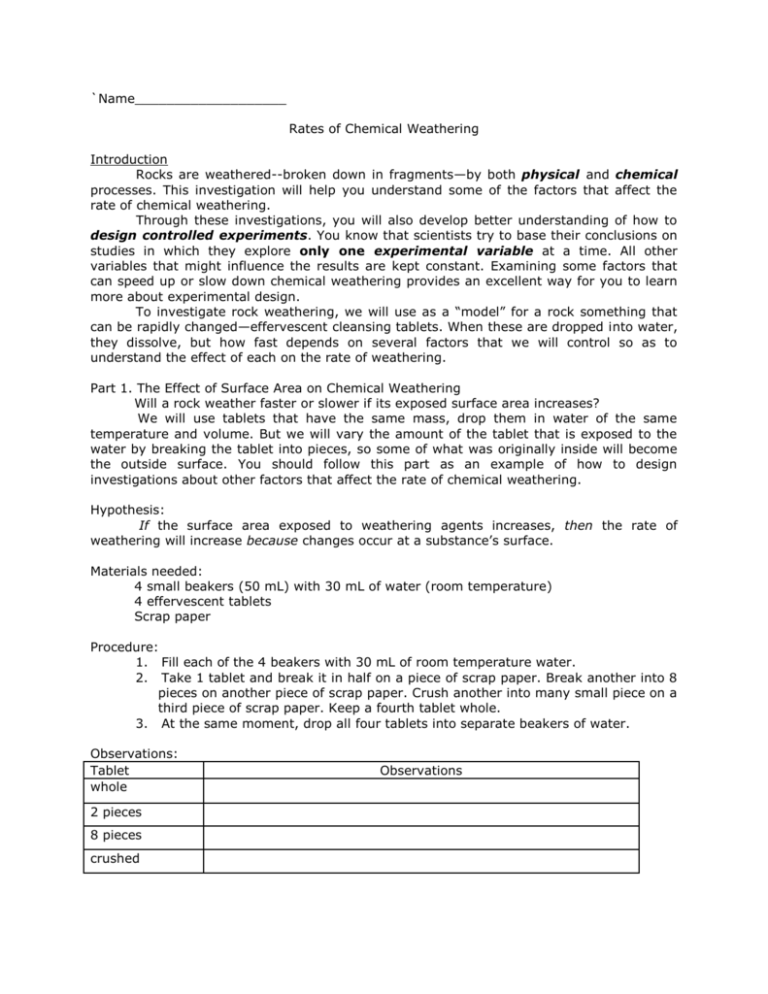
`Name___________________ Rates of Chemical Weathering Introduction Rocks are weathered--broken down in fragments—by both physical and chemical processes. This investigation will help you understand some of the factors that affect the rate of chemical weathering. Through these investigations, you will also develop better understanding of how to design controlled experiments. You know that scientists try to base their conclusions on studies in which they explore only one experimental variable at a time. All other variables that might influence the results are kept constant. Examining some factors that can speed up or slow down chemical weathering provides an excellent way for you to learn more about experimental design. To investigate rock weathering, we will use as a “model” for a rock something that can be rapidly changed—effervescent cleansing tablets. When these are dropped into water, they dissolve, but how fast depends on several factors that we will control so as to understand the effect of each on the rate of weathering. Part 1. The Effect of Surface Area on Chemical Weathering Will a rock weather faster or slower if its exposed surface area increases? We will use tablets that have the same mass, drop them in water of the same temperature and volume. But we will vary the amount of the tablet that is exposed to the water by breaking the tablet into pieces, so some of what was originally inside will become the outside surface. You should follow this part as an example of how to design investigations about other factors that affect the rate of chemical weathering. Hypothesis: If the surface area exposed to weathering agents increases, then the rate of weathering will increase because changes occur at a substance’s surface. Materials needed: 4 small beakers (50 mL) with 30 mL of water (room temperature) 4 effervescent tablets Scrap paper Procedure: 1. Fill each of the 4 beakers with 30 mL of room temperature water. 2. Take 1 tablet and break it in half on a piece of scrap paper. Break another into 8 pieces on another piece of scrap paper. Crush another into many small piece on a third piece of scrap paper. Keep a fourth tablet whole. 3. At the same moment, drop all four tablets into separate beakers of water. Observations: Tablet whole 2 pieces 8 pieces crushed Observations Conclusions: Now you and your partners will try to design investigations on two additional factors that can affect the rate of chemical weathering—temperature and acidity. Use the limited information provided and your knowledge of science to complete Parts 2 and 3 following the example above. Part 2: The Effect of Temperature on the Rate of Chemical Weathering Will rocks weather faster in warmer or cooler climates? Hypothesis: If the temperature is warmer, then the rate of chemical weathering will be _____________________ because _______________________________________ ___________________________________________________________________ Materials needed: _____ 50 mL beakers with _____ mL of water in each ________________________________________________ water ________________________________________________ water ________________________________________________ water Procedure: 1. _____________________________________________________________ 2. _____________________________________________________________ 3. _____________________________________________________________ Observations: Conclusions: Part 3: The Effect of Acidity on the Rate of Chemical Weathering How does acidity (low pH) affect the rate of rock weathering? Hypothesis: If acidic water (such as club soda) drops on the rocks, then the rate of chemical weathering will be _________________ because _______________ ___________________________________________________________________ Materials needed: _____ 50 mL beakers with _____ mL of water in each Seltzer (or club soda) water (at the same temperature as the seltzer) Procedure: 1. _____________________________________________________________ 2. _____________________________________________________________ 3. _____________________________________________________________ Observations: Conclusions: Questions: _____1. Chemical weathering will act fastest in environments that are A. cool and dry B. cool and moist C. warm and dry D. warm and moist _____2. Which rocks are most rapidly weathered by acidic groundwater? A. basalt and granite B. gneiss and schist C. limestone and marble D. sandstone and quartzite 3. Name two possible errors that a student might do in conducting these experiments.
